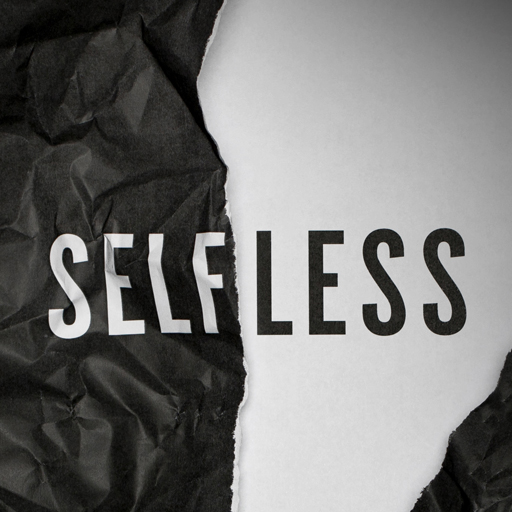In our increasingly interconnected world, the pursuit of a selfless life is not merely desirable; it is imperative. The Bahá’í teachings offer profound insights into altruism, encouraging individuals to transcend mere self-interest and embrace the well-being of humanity. This exploration delves into the concept of altruism as articulated in Bahá’í writings, examining its implications for personal development and societal transformation.
The essence of a selfless life is steeped in the universal principle of service to others. Bahá’í teachings posit that true happiness arises from contributing to the welfare of humanity. This notion invites individuals to reflect on their motivations and actions. Are they driven by personal ambition, or do they genuinely seek to uplift those around them? This introspection is the bedrock of altruism, compelling one to acknowledge the intricate interconnectedness of all human beings.
Two fundamental dimensions warrant consideration when assessing altruism: individual empowerment and collective responsibility. The Bahá’í Faith emphasizes that fostering a selfless attitude begins with personal growth. When individuals cultivate virtues such as compassion, empathy, and kindness, they create a ripple effect that resonates throughout their communities. The act of serving others not only enhances the lives of recipients but also enriches the giver’s soul. In essence, altruism becomes a transformative force, fostering a sense of purpose and belonging.
Moreover, Bahá’í principles advocate for social responsibility, positioning individuals as stewards of societal change. Followers are encouraged to engage in acts of service that address societal injustices—be it through volunteerism, charitable endeavors, or advocacy for marginalized groups. The commitment to collective welfare necessitates that individuals critically evaluate the structures and systems that perpetuate inequality. In doing so, adherents are tasked not only with alleviating immediate suffering but also with contributing to the establishment of a more just and equitable society.
The Bahá’í teachings further elucidate the importance of intention in altruistic endeavors. Genuine service transcends superficial good deeds; it embodies a heartfelt desire to assist others. The emphasis on intention compels practitioners to be mindful of their motives. Are they seeking recognition or validation, or do they act from a pure desire to contribute positively to the world? Understanding the nuances of intention fosters accountability and integrity in altruistic actions.
A selfless life is also characterized by the practice of detachment from the fruits of one’s labor. Bahá’í teachings assert that while individuals should strive for excellence in their endeavors, they must ultimately relinquish attachment to outcomes. This paradigm shift liberates individuals from the anxiety of expectations, fostering a spirit of genuine service that is uninhibited by personal gain. In this way, altruism flourishes, unencumbered by the shackles of ego.
As we reflect on the nature of altruism, we must also consider the role of community in nurturing selfless behavior. Bahá’í communities are designed to cultivate an environment conducive to altruism, allowing individuals to connect, learn, and grow together. The synergy created within communal spaces fuels collective altruistic efforts, amplifying the impact of individual contributions. Engaging in collaborative service projects enables participants to harness their unique talents and insights, fostering a sense of unity and shared purpose.
To deepen one’s understanding of altruism within the context of Bahá’í teachings, it is essential to engage with historical narratives and contemporary examples of selfless lives. Prominent figures in the Bahá’í Faith exemplify the transformative power of altruism, often sacrificing personal comforts for the greater good. These narratives serve as potent reminders of the profound impact that one individual can have on the world. Engaging with these stories instills inspiration and encourages adherents to forge their own paths of selfless service.
Additionally, the application of altruistic principles extends beyond individual actions—it permeates the realm of policy and governance. Bahá’í teachings advocate for the establishment of systems that prioritize the welfare of all citizens. Policymakers are urged to consider the broader implications of their decisions, ensuring that the needs of the vulnerable are not overlooked. By fostering an ethos of altruism within the corridors of power, societies can cultivate environments that promote the common good, aligning policy with the overarching goal of universal justice.
A vital aspect of living a selfless life is the lifelong commitment to self-assessment and growth. Individuals are encouraged to regularly evaluate their actions and intentions, asking themselves critical questions: Am I serving others with sincerity? Do my actions align with the principles of justice and equity? This ongoing reflection not only enhances personal accountability but also promotes a culture of learning and adaptation within communities.
In conclusion, the Bahá’í teachings illuminate the path toward a selfless life, advocating for a profound commitment to altruism. Through individual empowerment, collective responsibility, mindful intentions, and community engagement, followers can embody the principles of service in their daily lives. Ultimately, the pursuit of altruism is not just an aspiration; it is a transformative journey that can reshape individual lives and the broader fabric of society. By embracing this call to selflessness, humanity moves one step closer to the realization of a harmonious and just world.
